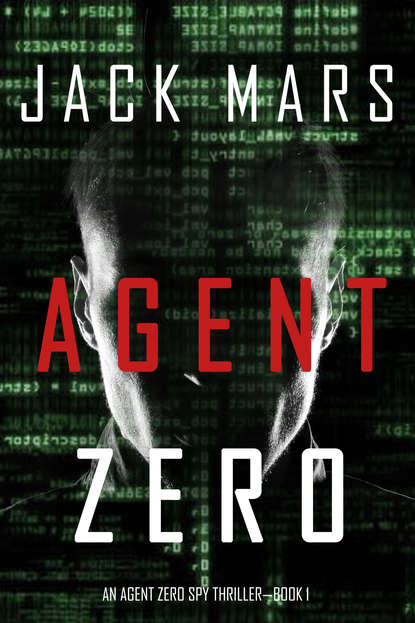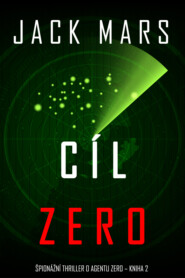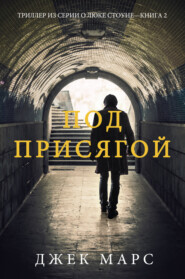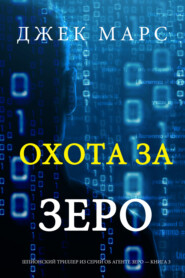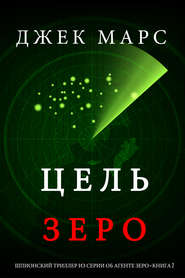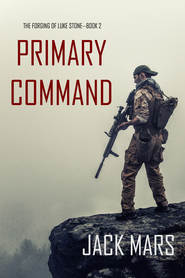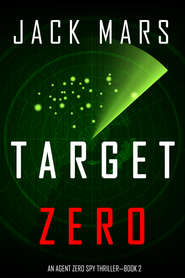По всем вопросам обращайтесь на: info@litportal.ru
(©) 2003-2024.
✖
Agent Zero
Автор
Год написания книги
2019
Настройки чтения
Размер шрифта
Высота строк
Поля
There was a picture of her on one of his bookshelves, taken at a friend’s wedding a decade earlier. Most nights the frame was turned backward, or else he would spend the entire evening staring at it.
How stunningly unfair the world could be. One day, they had everything—a nice home, wonderful kids, great careers. They were living in McLean, Virginia; he was working as an adjunct professor at the nearby George Washington University. His job had him traveling a lot, to seminars and summits and as a guest lecturer on European history to schools all over the country. Kate was in the restorations department at the Smithsonian American Art Museum. Their girls were thriving. Life was perfect.
But as Robert Frost famously said, nothing gold can stay. One wintry afternoon Kate fainted at work—at least that’s what her coworkers believed it to be when she suddenly went limp and fell out of her chair. They called an ambulance, but it was already too late. She was announced DOA at the hospital. An embolism, they had said. A blood clot had traveled to her brain and caused an ischemic stroke. The doctors used barely comprehensible medical terms wherever possible in their explanation, as if it would somehow soften the blow.
Worst of all, Reid had been away when it happened. He was at an undergraduate seminar in Houston, Texas, giving talks about the Middle Ages when he got the call.
That was how he discovered his wife had died. A phone call, just outside a conference room. Then came the flight home, the attempts to console his daughters in the midst of his own devastating grief, and the eventual move to New York.
He pushed himself up from the chair and spun the photo around. He didn’t like thinking about all that, the end and the aftermath. He wanted to remember her like this, in the photo, Kate at her brightest. That’s what he chose to remember.
There was something else, something right at the edge of his consciousness—some sort of hazy memory attempting to surface as he stared at the picture. It almost felt like déjà vu, but not of the present moment. It was as if his subconscious was trying to push something through.
A sudden knock at the door startled him back to reality. Reid hesitated, wondering who it could be. It was nearly midnight; the girls had been in bed for a couple of hours. The brisk knock came again. Fearing it might wake the kids, he hurried to answer it. After all, he lived in a safe neighborhood and had no reason to fear opening his door, midnight or not.
The harsh winter wind was not what froze him in his tracks. He stared in surprise at the three men on the other side. They were decidedly Middle Eastern, each with dark skin, a dark beard, and deep-set eyes, dressed in thick black jackets and boots. The two that flanked either side of the exit were tall and lanky; the third, behind them, was broad-shouldered and hulking, with an assumedly perpetual scowl.
“Reid Lawson,” said the tall man to the left. “Is that you?” His accent sounded Iranian, but it was not thick, suggesting he had spent a decent amount of time stateside.
Reid’s throat felt dry as he noticed, over their shoulders, a gray van idling at the curb, its headlights turned off. “Um, I’m sorry,” he told them. “You must have the wrong house.”
The tall man to the right, without taking his eyes off Reid, held up a cell phone for his two associates to see. The man to the left, the one asking the question, nodded once.
Without warning, the hulking man lurched forward, deceptively fast for his size. One meaty hand reached for Reid’s throat. Reid accidentally twisted away, just out of reach, by stumbling backward and nearly tripping over his own feet. He recovered, touching down with his fingertips on the tiled floor.
As he skittered backward to regain his balance, the three men entered his house. He panicked, thinking only of the girls asleep in their beds upstairs.
He turned and ran through the foyer, into the kitchen, and skirted around the island. He glanced over his shoulder—the men gave chase. Cell phone, he thought desperately. It was on his desk in the study, and his assailants blocked the way.
He had to lead them away from the house, and away from the girls. To his right was the door to the backyard. He threw it open and ran out onto the deck. One of the men cursed in a foreign tongue—Arabic, he guessed—as they ran after him. Reid vaulted over the railing of the deck and landed in the small backyard. A bolt of pain shot up through his ankle with the impact, but he ignored it. He rounded the corner of the house and flattened himself against the brick façade, trying desperately to quiet his ragged breathing.
The brick was icy to the touch and the slight winter breeze cut through him like a knife. His toes were already numb—he’d run out of the house in only his socks. Goose bumps prickled up and down his limbs.
He could hear the men whispering to each other, hoarsely and urgently. He counted the distinct voices—one, two, and then three. They were out of the house. Good; that meant they were only after him, and not the kids.
He needed to get to a phone. He couldn’t go back into the house without endangering his girls. He couldn’t very well bang on a neighbor’s door. Wait—there was a yellow emergency call box mounted on a telephone pole down the block. If he could get there…
He took a deep breath and sprinted across the dark yard, daring to enter the halo of light cast from the streetlamps above. His ankle throbbed in protest and the shock of the cold sent stings up his feet, but he forced himself to move as fast as he could.
Reid glanced over his shoulder. One of the tall men had spotted him. He shouted to his cohorts, but did not chase after him. Strange, Reid thought, but he didn’t stop to question it.
He reached the yellow emergency call box, tore it open, and jammed his thumb against the red button, which would send an alert to the local 911 dispatch. He looked over his shoulder again. He couldn’t see any of them.
“Hello?” he hissed into the intercom. “Can anyone hear me?” Where was the light? There was supposed to be a light when the call button was pushed. Was this even working? “My name is Reid Lawson, there are three men after me, I live at—”
A strong hand grabbed a fistful of Reid’s short brown hair and yanked backward. His words caught in his throat and escaped as little more than a hoarse wheeze.
Next thing he knew, there was rough fabric over his face, blinding him—a bag on his head—and at the same time, his arms were forced behind his back and locked into cuffs. He tried to struggle, but the strong hands held him firmly, twisting his wrists nearly to the point of breaking.
“Wait!” he managed to cry out. “Please…” An impact struck his abdomen so hard that the air rushed out of his lungs. He couldn’t breathe, let alone speak. Dizzying colors swam in his vision as he nearly passed out.
Then he was being dragged, his socks scraping the pavement of the sidewalk. They shoved him into the van and slid the door shut behind him. The three men exchanged guttural foreign words with each other that sounded accusatory.
“Why…?” Reid finally managed to choke out.
He felt the sharp sting of a needle in his upper arm, and then the world fell away.
CHAPTER TWO
Blind. Cold. Rumbling, deafening, jostling, aching.
The first thing Reid noticed as he woke was that the world was black—he could not see. The acrid scent of fuel filled his nostrils. He tried to move his throbbing limbs, but his hands were bound behind him. He was freezing, but there was no breeze; just cold air, as if he were sitting in a refrigerator.
Slowly, as if through a fog, the memory of what had occurred floated back to him. The three Middle Eastern men. A bag over his head. A needle in his arm.
He panicked, yanking at his bonds and flailing his legs. Pain seared through his wrists where the metal of the cuffs dug into his skin. His ankle pulsed, sending shockwaves up his left leg. There was an intense pressure in his ears, and he could not hear anything other than a roaring engine.
For just a split second, he felt a dropping sensation in his stomach—a result of negative vertical acceleration. He was on a plane. And by the sound of it, this was no ordinary passenger plane. The rumbling, the intensely loud engine, the smell of fuel… he realized he must on a cargo plane.
How long had he been unconscious? What did they shoot him with? Were the girls safe? The girls. Tears stung his eyes as he hoped against hope that they were safe, that the police had heard enough of his message, and that authorities had been sent to the house…
He squirmed in his metal seat. Despite the pain and hoarseness in his throat, he ventured to speak.
“H-hello?” It came out as barely a whisper. He cleared his throat and tried again. “Hello? Anyone…?” He realized then that the noise of the engine would drown him out to anyone who wasn’t seated beside him. “Hello!” he tried to shout. “Please… someone tell me what’s—”
A harsh male voice hissed at him in Arabic. Reid flinched; the man was close, no more than a few feet away.
“Please, just tell me what’s going on,” he pleaded. “What’s happening? Why are you doing this?”
Another voiced shouted threateningly in Arabic, this time to his right. Reid winced at the sharp reprimand. He hoped that the rumbling of the plane masked the trembling in his limbs.
“You have the wrong person,” he said. “What is it you want? Money? I don’t have much, but I can—wait!” A strong hand closed around his upper arm in a viselike grip, and an instant later he was ripped from his seat. He staggered, trying to stand, but the unsteadiness of the plane and the pain in his ankle won out. His knees buckled and he fell on his side.
Something solid and heavy struck him in the midsection. Pain spider-webbed through his torso. He tried to protest, but his voice only came out in unintelligible sobs.
Another boot kicked him in the back. Yet another, in the chin.
Despite the horrifying situation, a bizarre thought struck Reid. These men, their voices, these blows all suggested a personal vendetta. He did not just feel attacked. He felt loathed. These men were angry—and their anger was directed at him like the pinpoint of a laser.
The pain subsided, slowly, and gave way to a cold numbness that engulfed his body as he passed out.
*
Pain. Searing, throbbing, aching, burning.
Reid woke again. The memories of the past… he didn’t even know how long it had been, nor did he know if it was day or night, and where he was that it might be day or night. But the memories came again, disjointed, like single frames cut from a film reel and left on the floor.
Three men.
How stunningly unfair the world could be. One day, they had everything—a nice home, wonderful kids, great careers. They were living in McLean, Virginia; he was working as an adjunct professor at the nearby George Washington University. His job had him traveling a lot, to seminars and summits and as a guest lecturer on European history to schools all over the country. Kate was in the restorations department at the Smithsonian American Art Museum. Their girls were thriving. Life was perfect.
But as Robert Frost famously said, nothing gold can stay. One wintry afternoon Kate fainted at work—at least that’s what her coworkers believed it to be when she suddenly went limp and fell out of her chair. They called an ambulance, but it was already too late. She was announced DOA at the hospital. An embolism, they had said. A blood clot had traveled to her brain and caused an ischemic stroke. The doctors used barely comprehensible medical terms wherever possible in their explanation, as if it would somehow soften the blow.
Worst of all, Reid had been away when it happened. He was at an undergraduate seminar in Houston, Texas, giving talks about the Middle Ages when he got the call.
That was how he discovered his wife had died. A phone call, just outside a conference room. Then came the flight home, the attempts to console his daughters in the midst of his own devastating grief, and the eventual move to New York.
He pushed himself up from the chair and spun the photo around. He didn’t like thinking about all that, the end and the aftermath. He wanted to remember her like this, in the photo, Kate at her brightest. That’s what he chose to remember.
There was something else, something right at the edge of his consciousness—some sort of hazy memory attempting to surface as he stared at the picture. It almost felt like déjà vu, but not of the present moment. It was as if his subconscious was trying to push something through.
A sudden knock at the door startled him back to reality. Reid hesitated, wondering who it could be. It was nearly midnight; the girls had been in bed for a couple of hours. The brisk knock came again. Fearing it might wake the kids, he hurried to answer it. After all, he lived in a safe neighborhood and had no reason to fear opening his door, midnight or not.
The harsh winter wind was not what froze him in his tracks. He stared in surprise at the three men on the other side. They were decidedly Middle Eastern, each with dark skin, a dark beard, and deep-set eyes, dressed in thick black jackets and boots. The two that flanked either side of the exit were tall and lanky; the third, behind them, was broad-shouldered and hulking, with an assumedly perpetual scowl.
“Reid Lawson,” said the tall man to the left. “Is that you?” His accent sounded Iranian, but it was not thick, suggesting he had spent a decent amount of time stateside.
Reid’s throat felt dry as he noticed, over their shoulders, a gray van idling at the curb, its headlights turned off. “Um, I’m sorry,” he told them. “You must have the wrong house.”
The tall man to the right, without taking his eyes off Reid, held up a cell phone for his two associates to see. The man to the left, the one asking the question, nodded once.
Without warning, the hulking man lurched forward, deceptively fast for his size. One meaty hand reached for Reid’s throat. Reid accidentally twisted away, just out of reach, by stumbling backward and nearly tripping over his own feet. He recovered, touching down with his fingertips on the tiled floor.
As he skittered backward to regain his balance, the three men entered his house. He panicked, thinking only of the girls asleep in their beds upstairs.
He turned and ran through the foyer, into the kitchen, and skirted around the island. He glanced over his shoulder—the men gave chase. Cell phone, he thought desperately. It was on his desk in the study, and his assailants blocked the way.
He had to lead them away from the house, and away from the girls. To his right was the door to the backyard. He threw it open and ran out onto the deck. One of the men cursed in a foreign tongue—Arabic, he guessed—as they ran after him. Reid vaulted over the railing of the deck and landed in the small backyard. A bolt of pain shot up through his ankle with the impact, but he ignored it. He rounded the corner of the house and flattened himself against the brick façade, trying desperately to quiet his ragged breathing.
The brick was icy to the touch and the slight winter breeze cut through him like a knife. His toes were already numb—he’d run out of the house in only his socks. Goose bumps prickled up and down his limbs.
He could hear the men whispering to each other, hoarsely and urgently. He counted the distinct voices—one, two, and then three. They were out of the house. Good; that meant they were only after him, and not the kids.
He needed to get to a phone. He couldn’t go back into the house without endangering his girls. He couldn’t very well bang on a neighbor’s door. Wait—there was a yellow emergency call box mounted on a telephone pole down the block. If he could get there…
He took a deep breath and sprinted across the dark yard, daring to enter the halo of light cast from the streetlamps above. His ankle throbbed in protest and the shock of the cold sent stings up his feet, but he forced himself to move as fast as he could.
Reid glanced over his shoulder. One of the tall men had spotted him. He shouted to his cohorts, but did not chase after him. Strange, Reid thought, but he didn’t stop to question it.
He reached the yellow emergency call box, tore it open, and jammed his thumb against the red button, which would send an alert to the local 911 dispatch. He looked over his shoulder again. He couldn’t see any of them.
“Hello?” he hissed into the intercom. “Can anyone hear me?” Where was the light? There was supposed to be a light when the call button was pushed. Was this even working? “My name is Reid Lawson, there are three men after me, I live at—”
A strong hand grabbed a fistful of Reid’s short brown hair and yanked backward. His words caught in his throat and escaped as little more than a hoarse wheeze.
Next thing he knew, there was rough fabric over his face, blinding him—a bag on his head—and at the same time, his arms were forced behind his back and locked into cuffs. He tried to struggle, but the strong hands held him firmly, twisting his wrists nearly to the point of breaking.
“Wait!” he managed to cry out. “Please…” An impact struck his abdomen so hard that the air rushed out of his lungs. He couldn’t breathe, let alone speak. Dizzying colors swam in his vision as he nearly passed out.
Then he was being dragged, his socks scraping the pavement of the sidewalk. They shoved him into the van and slid the door shut behind him. The three men exchanged guttural foreign words with each other that sounded accusatory.
“Why…?” Reid finally managed to choke out.
He felt the sharp sting of a needle in his upper arm, and then the world fell away.
CHAPTER TWO
Blind. Cold. Rumbling, deafening, jostling, aching.
The first thing Reid noticed as he woke was that the world was black—he could not see. The acrid scent of fuel filled his nostrils. He tried to move his throbbing limbs, but his hands were bound behind him. He was freezing, but there was no breeze; just cold air, as if he were sitting in a refrigerator.
Slowly, as if through a fog, the memory of what had occurred floated back to him. The three Middle Eastern men. A bag over his head. A needle in his arm.
He panicked, yanking at his bonds and flailing his legs. Pain seared through his wrists where the metal of the cuffs dug into his skin. His ankle pulsed, sending shockwaves up his left leg. There was an intense pressure in his ears, and he could not hear anything other than a roaring engine.
For just a split second, he felt a dropping sensation in his stomach—a result of negative vertical acceleration. He was on a plane. And by the sound of it, this was no ordinary passenger plane. The rumbling, the intensely loud engine, the smell of fuel… he realized he must on a cargo plane.
How long had he been unconscious? What did they shoot him with? Were the girls safe? The girls. Tears stung his eyes as he hoped against hope that they were safe, that the police had heard enough of his message, and that authorities had been sent to the house…
He squirmed in his metal seat. Despite the pain and hoarseness in his throat, he ventured to speak.
“H-hello?” It came out as barely a whisper. He cleared his throat and tried again. “Hello? Anyone…?” He realized then that the noise of the engine would drown him out to anyone who wasn’t seated beside him. “Hello!” he tried to shout. “Please… someone tell me what’s—”
A harsh male voice hissed at him in Arabic. Reid flinched; the man was close, no more than a few feet away.
“Please, just tell me what’s going on,” he pleaded. “What’s happening? Why are you doing this?”
Another voiced shouted threateningly in Arabic, this time to his right. Reid winced at the sharp reprimand. He hoped that the rumbling of the plane masked the trembling in his limbs.
“You have the wrong person,” he said. “What is it you want? Money? I don’t have much, but I can—wait!” A strong hand closed around his upper arm in a viselike grip, and an instant later he was ripped from his seat. He staggered, trying to stand, but the unsteadiness of the plane and the pain in his ankle won out. His knees buckled and he fell on his side.
Something solid and heavy struck him in the midsection. Pain spider-webbed through his torso. He tried to protest, but his voice only came out in unintelligible sobs.
Another boot kicked him in the back. Yet another, in the chin.
Despite the horrifying situation, a bizarre thought struck Reid. These men, their voices, these blows all suggested a personal vendetta. He did not just feel attacked. He felt loathed. These men were angry—and their anger was directed at him like the pinpoint of a laser.
The pain subsided, slowly, and gave way to a cold numbness that engulfed his body as he passed out.
*
Pain. Searing, throbbing, aching, burning.
Reid woke again. The memories of the past… he didn’t even know how long it had been, nor did he know if it was day or night, and where he was that it might be day or night. But the memories came again, disjointed, like single frames cut from a film reel and left on the floor.
Three men.





